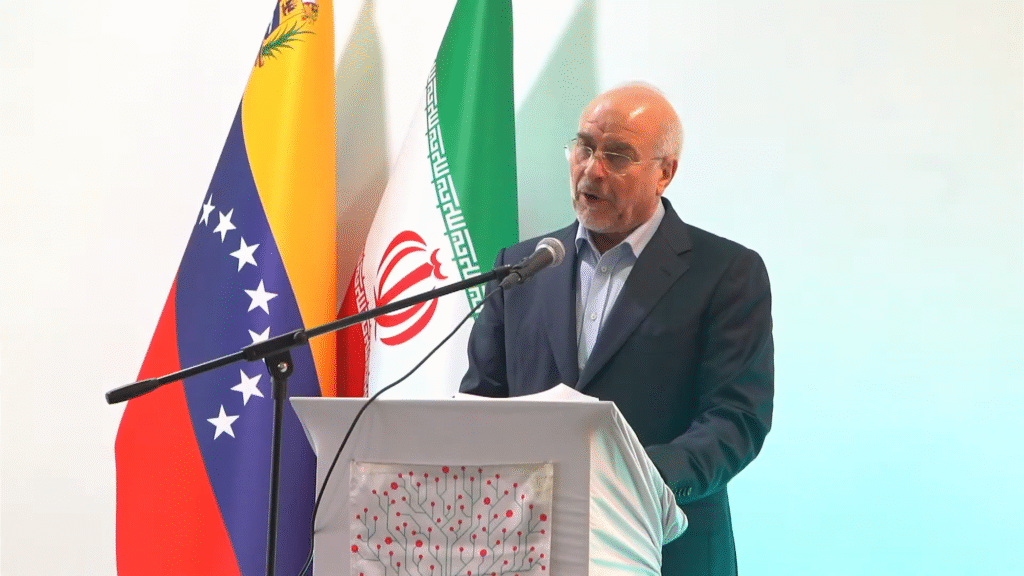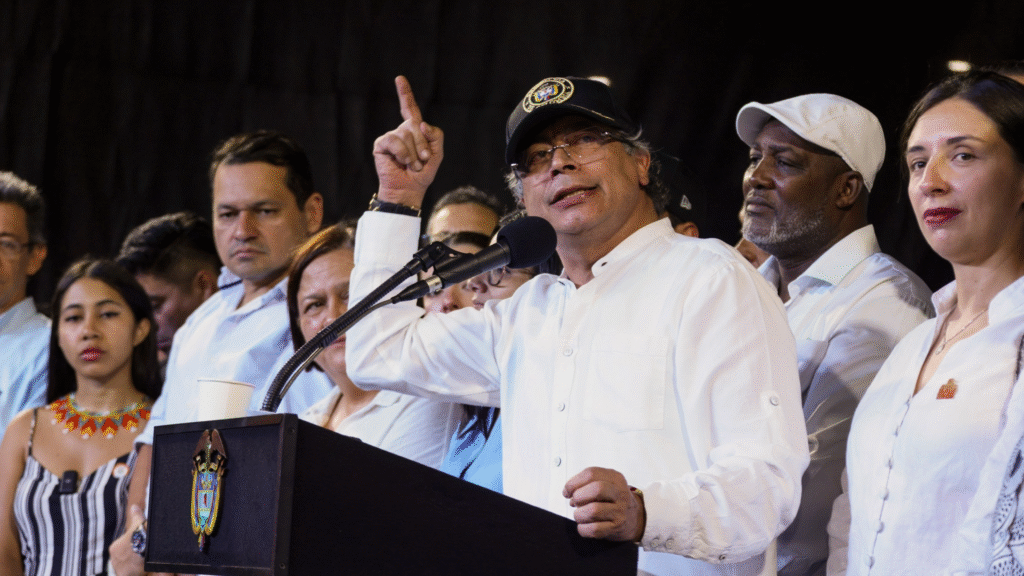Luisa González, candidate of the Citizens’ Revolution at a campaign event.
Ecuador’s presidential race is going to a second round. With 96% of valid votes counted in the first round vote, the top two candidates, Luisa González and incumbent Daniel Noboa, have found themselves in a statistical tie. Official figures shown on the results portal of the National Electoral Council (CNE) show Noboa, leader of the National Democratic Action (ADN) party, received 44.17% of votes (4,402,663 total) while González, a member of the left-wing Citizens Revolution (RC) party, reached 43.94% (4,379,675 total). In third place, indigenous leader Leonidas Iza, in representation of the Pachakutik party, received 5.3% of votes, amounting to 527,856 votes. Andrea González—who ran as vice presidential candidate in 2023 alongside US informant Fernando Villavicencio—received 2.7% of the vote (268,846 votes).
Gracias a nuestra militancia, a los ciudadanos, a todos los que buscamos un cambio de rumbo para nuestra Patria.
— Luisa González (@LuisaGonzalezEc) February 10, 2025
Ellos tienen el miedo, nosotros la esperanza. #RevivirEcuador pic.twitter.com/gHQP5w5gaV
It is the highest vote total the RC has received in a first round of elections since 2013, when Rafael Correa was re-elected to the presidency under the former Alianza PAIS party.
That result was achieved despite a number of factors which have stacked the odds against the Citizens’ Revolution: A political persecution of a US-backed government that controls the CNE; a public prosecutor who has handled the election in favor of the Executive branch; a sitting president who campaigned without complying with the law; and other transparency issues surrounding the elections. The denouncement was reiterated in a post-election interview with RT: “We are living in a dictatorship, there is no rule of law. Mr. Noboa makes and unmakes with the laws, with the Constitution.”
On Monday, González denounced “anomalies” during the counting process and warned that there were about 2,600 vote tally sheets with inconsistencies, amounting to upwards of 700,000 votes. In an interview, González drew attention to a fraudulent exit poll publicly disseminated at the closing of the polls on Sunday, by a man named Diego Tello, who has not disclosed the financing of his survey. “[Daniel Noboa] said he won in a single round. They put out an exit poll where they say he wins with 50%. False. We knew that this was false. An exit poll contracted by president Noboa and endorsed by the CNE, which was obviously lying.”
From González’s campaign, Andrés Arauz called out the fraudulent exit poll, which he said was “published by the hegemonic media”, adding that any legitimate exit poll would have published a provincial breakdown and that the survey lacked statistical rigor. The former presidential candidate for the RC in the 2021 general elections implored polling entities and officials to demonstrate “greater academic rigor“. “Ask who Diego Tello (the pollster) is. How many previous surveys has it done? When was one last published?” Without explanation and in peculiar fashion, the president cancelled his planned declarations on Sunday after the vote, disappointing his supporters who had gathered to hear from him.
As neither presidential hopeful surpassed 50% of valid votes in the first round election held on Sunday, or at least 40% with a 10 percentage point advantage over the runner-up, Noboa and Luisa will compete in a second round runoff election scheduled for April 13.
In response to the first round outcome, Mexican head of state, Claudia Sheinbaum, commented that she hopes for a female president of Ecuador who will help to reestablish diplomatic and economic ties with her country.
González responded to Sheinbaum’s comments on her X account, saying that normal diplomatic and economic relations will be re-established once she assumes the presidency and “will function with respect and cooperation for the benefit of our peoples.” She went on to stat that “women have the ability to take on challenges by being prepared, committed, and determined.”
Hoy, con el corazón lleno de esperanza y el compromiso de construir un Ecuador más justo y equitativo, participamos en este acto democrático. Juntos, podemos forjar el futuro que anhelamos para nuestras familias y comunidades. ¡Salgamos a votar con la convicción de que la… pic.twitter.com/8Y79CSKKgc
— Leonidas Iza Salazar (@LeonidasIzaEc) February 9, 2025
Last week, Noboa announced that his government was slapping a 27% tariff on Mexican imports, further exacerbating Ecuador-Mexico relations following his administration’s breach of international law and storming of the Mexican embassy in Quito to capture and imprison former Vice President Jorge Glas, in 2024. Just hours prior to the invasion, Mexico had granted Glas political asylum on grounds of political persecution.
President Noboa, the son of ultra-wealthy banana industry tycoon Álvaro Noboa, has faced a litany of social problems that have either emerged or worsened since he assumed the presidency. These issues include rolling nationwide blackouts caused by neglected repairs to the country’s hydroelectric plants, growing insecurity, a militarized response to rising violence, unemployment, increased migration, and the reauthorization of the U.S. military to station troops in the Galápagos Islands.
Under Noboa, U.S. influence in the country has increased and Ecuador has again lent itself as a tool for U.S. policy objectives in Latin America. A week before the election, Noboa gave a grand welcoming to Venezuelan far-right opposition figure and former candidate Edmundo González, with whom joint “decisions” were announced.
For her part, González has vowed to address the catastrophe left by a series of right-wing, neoliberal administrations that have governed Ecuador since Rafael Correa left office in May 2017. She has also pledged to roll out a centre-left model, to strengthen the state’s capacity through public investment in infrastructure projects, following in the footsteps of Correa. With two months to campaign, the Citizens’ Revolution hopes to receive support from third place candidate Leonidas Iza and the indigenous movement, CONAIE. Iza had a strong showing in many of the Sierra provinces, where the Citizens’ Revolution trailed Noboa. Center-left presidential candidate Carlos Rabascall has endorsed González for the April runoff.
Results for Ecuador’s National Assembly show that the legislature will be divided between the Noboa’s ADN and the left-wing CR. Neither political bloc will hold a majority of the 76 seats.








